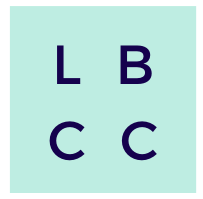Networking Who, Where, How?
Networking is about learning, not landing a job.
I know. I know. Networking. Uhhh! No one likes networking because it makes us all think of awkward conversations between sleezy business people trying to con one another into making a deal based on a contrived pitch and an inauthentic conversation. Now that we addressed the elephant in the room, I’d like to offer a different perspective. I view networking as a long-term strategic relationship that helps both parties learn more about one another and the work they do. That’s right. The goal of networking is to learn. To learn more about a company, industry, idea, or job. It isn’t merely about getting a job offer. Here are a few tips to help you identify people from whom you can learn, where to find them, and how to start the conversation.
Who is in my network?
I recommend starting this process by creating two lists. First, a list of contacts you already possess. We will refer to these contacts as your “inner circle.” Second, a list of contacts you would like to add to your professional circle. We will call this list your “additions”.

Where do I find people in my network?
Your inner circle includes your family, friends, old co-workers, old supervisors, people you volunteer with, people your kids go to school with, and people you exercise with on the weekends. Basically, it is anyone who you come in contact with regularly and/or you would feel comfortable chatting with to learn more about a specific professional opportunity.
Additions will be found at conferences, webinars, on LinkedIn, via a company website, by speaking to an inner circle member, on professional association websites, and possibly even through talking to a stranger. When looking for additions, you want to be strategic. Your “additions” to your network should include individuals who can help you learn more about your current professional goals.
How do I connect with someone?
There are many ways to go about networking. However, I would recommend an approach that seeks to harness a learning opportunity rather than initiate a sleezy business deal. Once you have identified a person from your inner circle or a desired “addition,” reach out to this individual via phone or email and request 10-15 minutes of their time to conduct an informational interview. An informational interview is a conversation that is guided by questions you will prepare to help you learn more about the person, their professional journey, and point-of-view regarding their job and industry. When you reach out to this person, make sure you explain how you found their contact information, a little bit about yourself, why you would like to speak to them (remember flattery is always helpful), and then ask for a few moment of their time to chat. Here is an example of what this outreach could look like.
Hi Steve,
I hope this email finds you well. I found your contact information via my LinkedIn network. I have been working as a career counselor for the last eight years and I am interested in learning if it would be possible to transfer my coaching skills into a career in recruiting. I noticed on your LinkedIn profile that you have been with ABC Staffing for about as long as I have been a career counselor and you have accumulated a number of outstanding performance awards in the process. I’m reaching out to request if I could have 15 minutes of your time on the phone to learn more about you and how you got started in recruiting. Would you be interested in chatting with me? Thank you so much for your time and enjoy your day.
Respectfully,
Lauren Barlow
I will leave you with a little pro tip before I sign off. If you are able to secure an informational interview with a desired contact, compile a list of at least seven questions to guide the conversation. Make sure you close the informational interview by asking two crucial questions: Would you mind looking at my resume to see if there is anything I could do to improve? Is there anyone else who you think I should talk to so I can learn more about (insert whatever you are hoping to learn more about)?” Wrapping up the informational interview in this way will help you stay connected, gather industry-specific feedback on your resume, and grow your network.
Oh my gosh! Look at that. You were able to successfully network without feeling awkward. I told you it would be ok.


